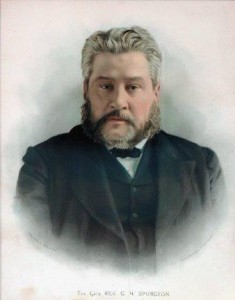 The Psychology of Resentment by seemingly unstoppable pull toward resentment. All you need to do is live a little in this fallen world. Before long you’re given a good solid reason to resent someone. Often someone quite close to you. Family member, spouse, parent, long-time friend, etc. It feels impossible to love that person.
The Psychology of Resentment by seemingly unstoppable pull toward resentment. All you need to do is live a little in this fallen world. Before long you’re given a good solid reason to resent someone. Often someone quite close to you. Family member, spouse, parent, long-time friend, etc. It feels impossible to love that person.
What causes such bitterness? Why are our hearts so immovably deadened toward that person?
Well, they wronged you, so you resent them. They hurt you. They did what they should never have done. Or didn’t do what they should have done. And you bear the wounds.
Yes—but what’s the reason beneath the reason?
The fundamental reason is your God-given sense of justice—itself a good thing. You have been wronged, and you, created in God’s image and therefore with a rightly functioning sense of justice, of fairness, cry out that justice be done. The playing field must be leveled. Fairness demands it.
The trouble is that as a law-abiding citizen you know you can’t do something physically to them, as you may wish to (let’s just be honest here shall we?). And as a Christian you know you can’t verbally or publicly do something to them (perhaps simply because you would rather keep your reputation and leave them alone than exact revenge and lose your reputation; the greater idol outweighs the lesser).
So what happens? Where does a gospel-vacuous heart go in such a case? Here is what happens: instead of doing something externally to harm them you do something internally to harm them. You harbor bitterness. This is the psychology of resentment. You exercise emotional punishment toward them internally when actual punishment can’t be exercised externally. You set up a law-court in your heart since an actual law-court is unfeasible.
But here’s what happens. The bitterness you harbor, the emotional punishment you exact in your heart, has precisely the opposite effect, over time, than you think. Bitterness does nothing to the offender, while it quietly destroys the offended. Resentment kills, hollows out, the resenter, not the resented.
How then do we conquer bitterness?
By soaking in two realities.
One, God is the judge. He has a law court. A real law-court. And one day every person on the face of the earth who is not in Christ will be the defendant. The Bible even says that Christians one day will themselves assist God in judging the world, even judging the angels (1 Cor 6:2–3). Eventual fairness, justice, righting of wrongs, is gloriously inevitable. Your day of judging your offender is coming. But it is not today. You will take up the gavel. Just not today. If you seek to exact premature judgment, you destroy yourself.
Two, and most crucially, you yourself have offended God. And continue to offend him, in a hundred ways you are conscious of and a thousand you are not, every day. But he didn’t harbor bitterness against you. He didn’t resent you. He sent his Son for you. God decided to lay down every reason to resent you. Having been forgiven this, how in the world could we resent another?
Here’s C. S. Lewis, ‘On Forgiveness’–
To be a Christian means to forgive the inexcusable, because God has forgiven the inexcusable in you. This is hard. It is perhaps not so hard to forgive a single person great injury. But to forgive the incessant provocations of daily life–to keep on forgiving the bossy mother-in-law, the bullying husband, the nagging wife, the selfish daughter, the deceitful son–how can we do it? Only, I think, by remembering where we stand, by meaning our words when we say our prayers each night ‘forgive us our trespasses as we forgive those that trespass against us.’ We are offered forgiveness on no other terms. To refuse is to refuse God’s mercy for ourselves.

 “Since Eden, there hasn’t been a single election that is NOT a choice of the lesser of two (or more) evils.” – Dan Phillips
“Since Eden, there hasn’t been a single election that is NOT a choice of the lesser of two (or more) evils.” – Dan Phillips When it comes to how we preach when unbelievers are present to hear us (which I assume is any time we preach), there is a big difference between the approach of Ken Ham (of Answers in Genesis) and that of well known pastor, Andy Stanley (son of Charles Stanley).
When it comes to how we preach when unbelievers are present to hear us (which I assume is any time we preach), there is a big difference between the approach of Ken Ham (of Answers in Genesis) and that of well known pastor, Andy Stanley (son of Charles Stanley). (1) Please be praying for the Sproul family. Shannon Macfarlane Sproul, daughter of Dr. R.C. Sproul Jr. and granddaughter of Dr. R.C. Sproul, went to be with the Lord on Wednesday. She was just fifteen years old. It was only a year or so ago that R.C. Sproul Jr. lost his wife to cancer. Update
(1) Please be praying for the Sproul family. Shannon Macfarlane Sproul, daughter of Dr. R.C. Sproul Jr. and granddaughter of Dr. R.C. Sproul, went to be with the Lord on Wednesday. She was just fifteen years old. It was only a year or so ago that R.C. Sproul Jr. lost his wife to cancer. Update  (3) There’s a variety of resources in this week’s Friday Ligonier $5 sale worth considering, especially the Alaskan Cruise extensive series on election (eleven 45 minute messages) and the doctrines of Grace in John series by Dr. Steven Lawson (both are downloads). Other resources include material on preaching, Jonathan Edwards, Islam, Nehemiah, worldviews, God’s holiness, missions, and joy. They can be found
(3) There’s a variety of resources in this week’s Friday Ligonier $5 sale worth considering, especially the Alaskan Cruise extensive series on election (eleven 45 minute messages) and the doctrines of Grace in John series by Dr. Steven Lawson (both are downloads). Other resources include material on preaching, Jonathan Edwards, Islam, Nehemiah, worldviews, God’s holiness, missions, and joy. They can be found  But Scripture does not only tell us that man is dead in sin; it tells us something worse than this, namely, that he is utterly and entirely averse to everything that is good and right. “The carnal mind is enmity against God; for it is not subject to the Law of God, neither, indeed, can it be” (Rom 8:7). Turn all through Scripture and you find continually the will of man described as being contrary to the things of God. What did Christ say in that text so often quoted by the Arminian to disprove the very Doctrine which it clearly states? What did Christ say to those who imagined that men would come without Divine influence? He said, first, “No man can come unto Me except the Father which has sent Me draw him.” But He said something more strong—“You will not come unto Me that you might have life.” No man will come! Here lies the deadly mischief—not only that he is powerless to do good—but that he is powerful enough to do that which is wrong and that his will is desperately set against everything that is right! Go, Arminian, and tell your hearers that they will come if they please, but know that your Redeemer looks you in the face and tells you that you are uttering a lie! Men will not come! They never will come of themselves! You cannot persuade them to come! You cannot force them to come by all your thunders, nor can you entice them to come by all your invitations! They will not come to Christ, that they may have life! Until the Spirit draws them, they neither will come, nor can they!
But Scripture does not only tell us that man is dead in sin; it tells us something worse than this, namely, that he is utterly and entirely averse to everything that is good and right. “The carnal mind is enmity against God; for it is not subject to the Law of God, neither, indeed, can it be” (Rom 8:7). Turn all through Scripture and you find continually the will of man described as being contrary to the things of God. What did Christ say in that text so often quoted by the Arminian to disprove the very Doctrine which it clearly states? What did Christ say to those who imagined that men would come without Divine influence? He said, first, “No man can come unto Me except the Father which has sent Me draw him.” But He said something more strong—“You will not come unto Me that you might have life.” No man will come! Here lies the deadly mischief—not only that he is powerless to do good—but that he is powerful enough to do that which is wrong and that his will is desperately set against everything that is right! Go, Arminian, and tell your hearers that they will come if they please, but know that your Redeemer looks you in the face and tells you that you are uttering a lie! Men will not come! They never will come of themselves! You cannot persuade them to come! You cannot force them to come by all your thunders, nor can you entice them to come by all your invitations! They will not come to Christ, that they may have life! Until the Spirit draws them, they neither will come, nor can they! “Christ is the very essence of all delights and pleasures, the very soul and substance of them. As all the rivers are gathered into the ocean, which is the meeting-place of all the waters in the world, so Christ is that ocean in which all true delights and pleasures meet.” – John Flavel
“Christ is the very essence of all delights and pleasures, the very soul and substance of them. As all the rivers are gathered into the ocean, which is the meeting-place of all the waters in the world, so Christ is that ocean in which all true delights and pleasures meet.” – John Flavel “On a different page today, that royally pissed me off. Sometime in August, twenty years ago, my mother was raped. 9 months later, I came into the world.
“On a different page today, that royally pissed me off. Sometime in August, twenty years ago, my mother was raped. 9 months later, I came into the world. Dr. R. C. Sproul, Jr, wrote this today, “My precious girl Shannon’s mute tongue is now loosed, though once lame she now leaps for joy. She and her mom are held by our Lord.”
Dr. R. C. Sproul, Jr, wrote this today, “My precious girl Shannon’s mute tongue is now loosed, though once lame she now leaps for joy. She and her mom are held by our Lord.” “But to all who did receive him, who believed in his name, he gave the right to become children of God, who were born, not of blood nor of the will of the flesh nor of the will of man, but of God.” – John 1:12-13
“But to all who did receive him, who believed in his name, he gave the right to become children of God, who were born, not of blood nor of the will of the flesh nor of the will of man, but of God.” – John 1:12-13 In the second place, it stabs at the heart of the doctrine of regeneration, which is certainly taught in the Word of God. Now it is by regeneration and faith that we become the children of God, but how can that be if we are the children of God already? ‘But as many as received him, to them gave he power to become the sons of God, even to them that believe on his name: Which were born, not of blood, nor of the will of the flesh, nor of the will of man, but of God’ (John 1:12-13). How can God give to men the power to become His sons if they have it already?
In the second place, it stabs at the heart of the doctrine of regeneration, which is certainly taught in the Word of God. Now it is by regeneration and faith that we become the children of God, but how can that be if we are the children of God already? ‘But as many as received him, to them gave he power to become the sons of God, even to them that believe on his name: Which were born, not of blood, nor of the will of the flesh, nor of the will of man, but of God’ (John 1:12-13). How can God give to men the power to become His sons if they have it already? We would be horrified to hear of a surgeon who had just two weeks of training operating on someone’s brain. As important as brain surgery is, I believe the job of the Gospel preacher is far more important. Eternal souls hang in the balance, healthy and accurate. A teacher of the Bible needs rigorous training in the science of biblical interpretation (hermeneutics). But that’s not just true for the preacher; everyone of us needs to know how to gain an accurate knowledge of the Word of God.
We would be horrified to hear of a surgeon who had just two weeks of training operating on someone’s brain. As important as brain surgery is, I believe the job of the Gospel preacher is far more important. Eternal souls hang in the balance, healthy and accurate. A teacher of the Bible needs rigorous training in the science of biblical interpretation (hermeneutics). But that’s not just true for the preacher; everyone of us needs to know how to gain an accurate knowledge of the Word of God.